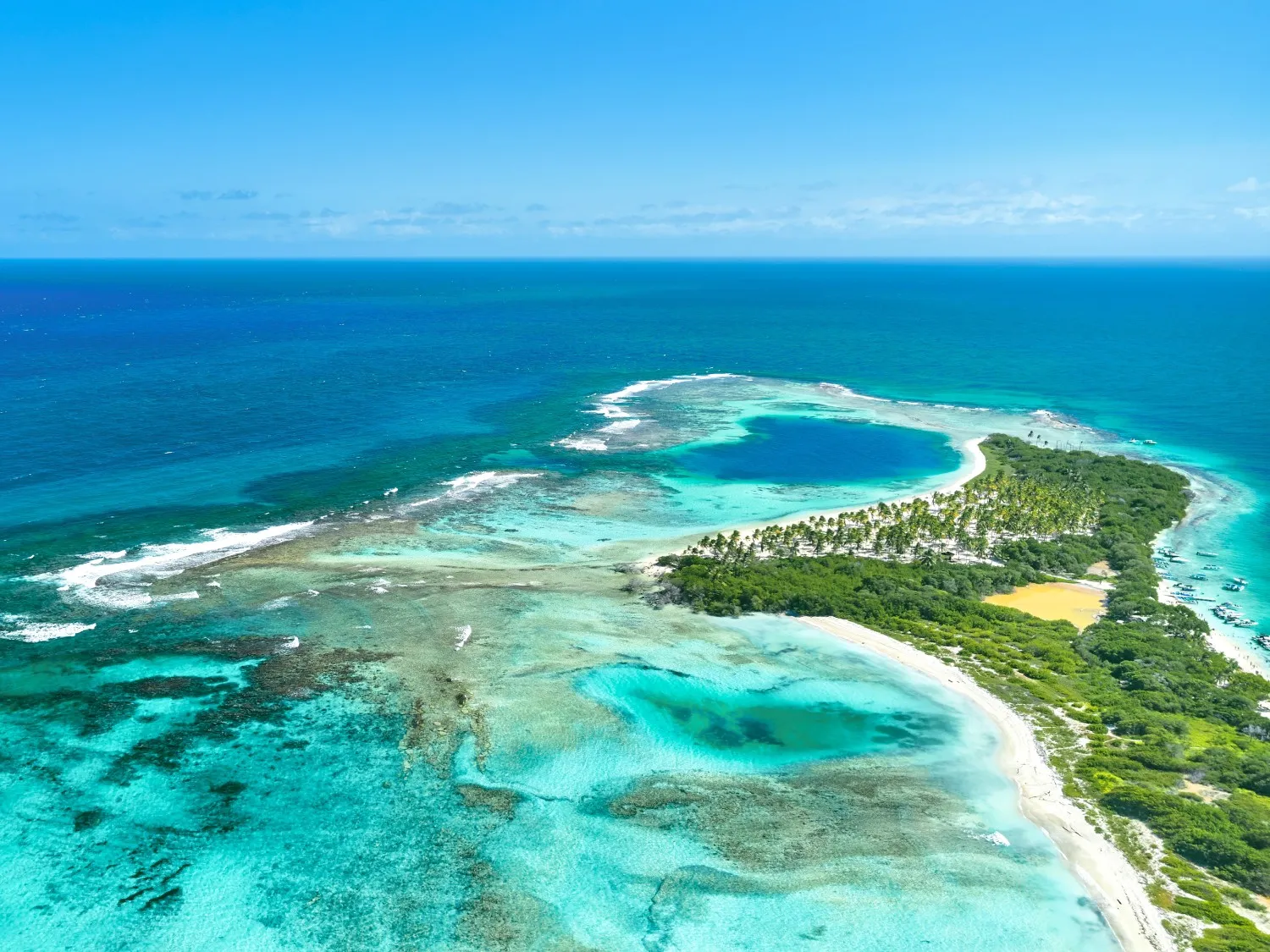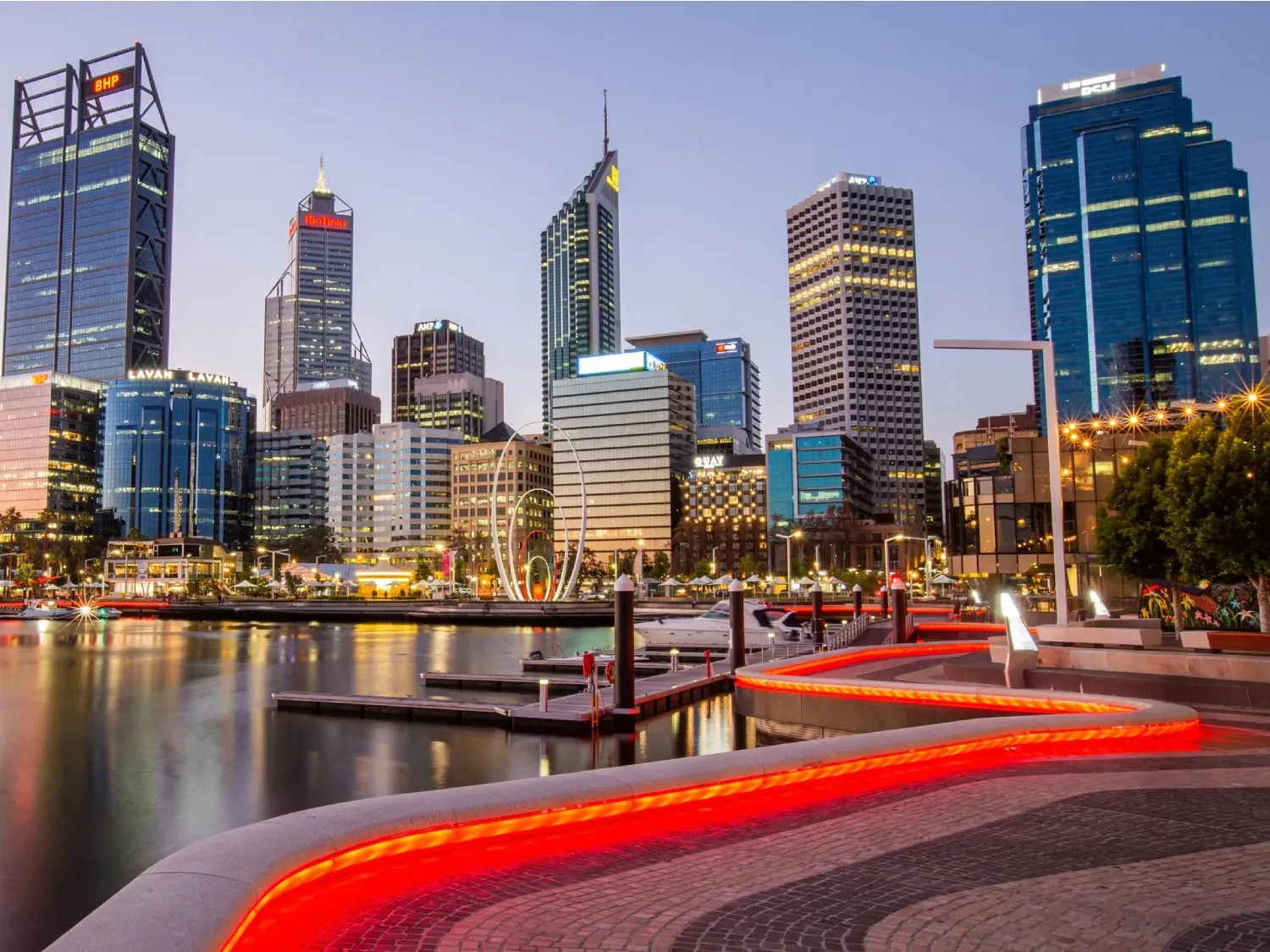Date: 17 September 2020
Gloria Guevara, WTTC President & CEO to discuss an inclusive and sustainable Caribbean recovery
The week of September 21, the CGI Action Network will bring together heads of state with business and civil leaders to promote a sustainable recovery and investments for island states
NEW YORK, NY – From September 21 to September 24, President Bill Clinton and Chelsea Clinton will virtually convene members of the Clinton Global Initiative (CGI) Action Network -- leaders from business, government, and civil society -- to drive action on resilience efforts in the Caribbean. The Action Network’s efforts started in 2018 in direct response to Hurricanes Maria and Irma and have been revamped to address the impacts of the COVID-19 pandemic in the region.
As the global community continues to address climate change and extreme weather events, Action Network members will continue to address the urgent need to foster economic recovery and growth in the Caribbean while also grappling with the effects of COVID-19.
The virtual week of action includes:
- Monday, September 21 – Building Back Greener: Promoting an Inclusive and Sustainable Caribbean Recovery
- Tuesday, September 22 – The Future is Now: Inspiration from Youth-Led Activism in the Caribbean
- Wednesday, September 23 – Opportunities for Investment in Renewable Energy
- Thursday, September 24 – COVID-19 in the Caribbean: Public Health Challenges and Innovations
Full details on the program are below.
With the continued threat of the 2020 hurricane season and challenges faced amid COVID-19, leaders from government, civil society, and business continue to prepare Caribbean communities for compounding and potentially devastating impacts. Despite this threat, while efforts in the Caribbean to transform the region into a climate-resilient zone have been mobilized, many new solutions are needed to tackle the complex challenges that have risen due to the global health crisis.
The region continues to balance the long-term need to invest in resilient infrastructure and economies with the short-term need to respond to COVID-19 and prepare for the hurricane season. It is more crucial than ever to facilitate cross-sector, cross-island coordination to meet these challenges.
The virtual convening will include:
Monday, September 21 – Building Back Greener: Promoting an Inclusive and Sustainable Caribbean Recovery
The COVID-19 pandemic is forcing leaders from governments, businesses, and civil society to reimagine what an economic recovery looks like. Leaders must be guided by principles of sustainability, resource sharing, and healthier infrastructure. According to the International Monetary Fund, Latin America and the Caribbean will see economic growth contract at almost twice the global average as a result of COVID-19, underscoring the far-reaching effects of the pandemic as it halts tourism and other critical industries throughout the region. In the Caribbean, which before the pandemic produced just 1% of global carbon emissions but bore the brunt of extreme weather events induced by climate change, the shifting economic landscape offers both challenges and opportunities for a greener, more inclusive, and resilient economic and public health recovery. In this session, leaders from across sectors will outline what is required for a green economic recovery in the Caribbean during and following the COVID-19 pandemic while showcasing opportunities for investors, philanthropists, and the international community to support the local initiatives that place the Caribbean at the forefront of progressive and resilient climate action.
Tuesday, September 22 – The Future is Now: Inspiration from Youth-Led Activism in the Caribbean
Young people in the Caribbean are leading the way in identifying and implementing progressive strategies to promote resilience and economic independence. By harnessing the power of science and technology, leveraging collective action as a tool to spark policy changes, and imagining a more socially progressive and inclusive future, youth are well equipped to spearhead the transformation our world needs to be more just and equitable. In this session, participants will hear from youth empowerment leaders and students as they share how they are pioneering resilient, inclusive, and equitable solutions to adapting to climate change.
Wednesday, September 23 – Opportunities for Investment in Renewable Energy
According to a recent BCG report, COVID-19 is threatening to shutter a significant number of businesses across the Caribbean and lead to negative economic growth. Though the pandemic has ushered in new uncertainty for Caribbean economies, leaders have identified the growing renewable energy sector as a significant opportunity for green recovery and economic diversification in the region. Billions in new investment can be activated to drive the renewable energy transition in the Caribbean, but more progress needs to be made to make these diverse sources of capital accessible. This effort will require partners from across regional organizations, investors, governments, utilities, and philanthropy to collaborate on new frameworks and financing strategies to bridge the gap between capital, enabling environments, and these important renewables projects. Though the double burden of COVID-19 and climate change are daunting, strategic coordination in this pivotal moment can have transformative results - increased resilience of island grids, thousands of new jobs, and economic diversification – as we work to establish renewable energy as a pillar of the sustainable recovery.
Thursday, September 24 – COVID-19 in the Caribbean: Public Health Challenges and Innovations
The COVID-19 pandemic poses unique challenges for healthcare providers and public health officials in the Caribbean in providing accessible, safe, and inclusive healthcare. Existing access gaps have been exacerbated due to lockdowns and fears of contracting the virus are prompting the need for new approaches to administering basic healthcare services while providing critically needed mental health support. At the same time, Caribbean public health officials and practitioners are preparing for an emerging second wave of COVID-19 cases by doubling down on proven solutions to provide healthcare while pioneering new and innovative technologies to reach patients across the Caribbean. In this virtual conversation, speakers will identify the best practices for managing COVID-19 in the Caribbean and showcase the innovations that are promoting a safe and disciplined public health response.
Featured participants will include President Bill Clinton, founder and board chair, Clinton Foundation; Chelsea Clinton, vice chair, Clinton Foundation; Prime Minister Allen Chastanet, St. Lucia; Prime Minister Mia Mottley, Barbados; Inger Andersen, executive director, United Nations Environment Programme; Gloria Guevara, WTTC President & CEO; Irwin LaRocque, secretary general, CARICOM; Joy St. John, executive director, CARPHA; Francine Baron, interim chief executive officer, CREAD; Maria Levis, chief executive officer, Impactivo; Talya Mohammed, energy and environment sustainable development strategist, Caribbean Tree Planting Project; Sydney Paul, business intelligence and marketing manager, UVI Research and Technology Park; Roshelle Pinnock, student, Caribbean Girls Hack; Angella Rainford, chief executive officer and founder, Soleco Energy; Juliette Sutherland, executive director, Queen Elizabeth Hospital; Suzanne Shaw, head of investment, Leap Co.; Dana Yaari, head of programs, IsraAid Dominica.
These discussions are a part of an ongoing series of virtual events hosted by the Clinton Foundation this fall that will inspire action through the Too Small to Fail (TSTF) early childhood initiative, Clinton Global Initiative University (CGI U), and other events focused on domestic economic recovery in light of COVID-19.
The approach of the Action Network brings together a diverse group of stakeholders to focus efforts on putting people first, including prioritizing a resilient future by helping communities to plan and prepare for future storms and the mounting effects of climate change.
To date, the Action Network has engaged 896 organizations that have launched 116 Commitments to Action that, when fully implemented, will drive $385.7 million dollars in investment to affected regions in the Caribbean. A full list of commitments can be found here: clintonfoundation.org/?s=commitments.
The Action Network, along with Clinton Global Initiative University, follows the success of CGI and the Commitment to Action model. Over the years, CGI and its partners have brought together leaders from across sectors to develop Commitments to Action that, when fully funded and implemented, will improve the lives of more than 430 million people in 180 countries worldwide.
The year-round work of the CGI Action Network is made possible by the generous support of our partners: InterEnergy, LesLois Shaw Foundation, Swiss Re, Tarsadia Foundation, and Tides Foundation.
For more information on the sessions, please visit: clintonfoundation.org/press-and-news/cgi-action-network-on-post-disaster-recovery/president-bill-clinton-and-chelsea-clinton-host-week-action-build-resilience/
WTTC Events
Webinar: Regenerating Destinations Through Nature Positive Tourism
Sign up for our next webinar.
Related News




